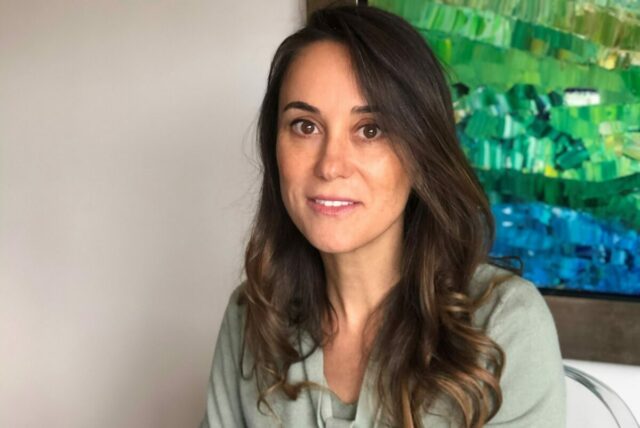INTERVIEW with Daniela Barone Soares, CEO at Snowball IM. For further expert opinions please use the question-level hyperlink.
| While experts discuss the increase of impact investing as part of sustainable recovery, Snowball expects it becoming the norm across the asset management industry. Would you please comment on progress towards that?
The future holds a tipping point – we are 10 years out from 2030 now and there is a lot of impetus from both Government and business to make progress on the UN Sustainable Development Goals. The second impetus is growing demand from investors – investors want impact. They are not always sold as much impact as they want, and they are getting wiser about it. In addition, significant infrastructure has now been built – intermediaries, expertise and research are in place, plus regulations and reporting are finally coalescing around common standards. A lot of progress is being made, so it is not a matter of “if” but “when”.
Against this mega trend, we have a resistance from the ‘old’ way of thinking, analysing and investing, which does not take impact into account. Impact investing becoming the norm across the asset management industry requires a fundamental rethink of not just the ‘what’ but also the ‘how’. Hopefully the next few years will see a significant shift into impact investing, as part of a sustainable recovery.
The interconnectedness and interrelatedness of the pandemic has seen people move closer to the mindset shift that is required for behaviour change in the investment industry. Are we comfortable funding activities we’ve seen accelerate the climate emergency, and exacerbate the effects of a pandemic? Certainly, one way we can make a positive difference is impact investing. Regulation, reporting and impact measurement, whilst not yet standardised are getting closer to that point, which also support the tailwinds. There are some headwinds as well, which in my view are ‘myths’ rather than reality: the perception that impact means lower returns, the fiduciary duty argument and a discredit in impact measurement. These are all being dispelled as investors get more informed and as the industry matures.
| What’s your view on returns?
The strategy of Snowball from the very beginning has been to look at how can we create a product that can scale – how can we make impact investing accessible to everyone? To do this means to make preserving capital a priority, reducing volatility and delivering a risk-adjusted return to investors. This is not meant to be philanthropy – this is meant to be a new way of achieving growth and returns, a way that allows the whole economic system to become sustainable. A study by DfiD in 2018 with the UK public revealed that, if given a choice, most people would prefer their investments to align with their values and to, at a minimum, avoid harm. Snowball’s medium-term mission is to make it possible: allow everyone to invest their savings and pensions for impact, with a decent return and lower volatility.
| Snowball recently released the report ‘Managing for Impact‘. Would you please highlight the key-findings of the report?
Firstly, it is important to put it in context: our fund managers have passed a very high bar on delivering impact in their respective asset classes (and not all asset classes are created equal from an impact standpoint).
That being said, fund managers are not performing as well as they think they are when it comes to impact: managers overestimate the impact they bring to their investments by an average of 10% when measured against Snowball’s best practice framework.
However, there is high engagement from their managers to collaborate across the sector and continually improve and move towards standardised ways to manage for impact. The highest performing asset class was private debt, with public debt managers scoring the lowest investor contribution.
The average score across all 21 managers was 10.3 out of 15. Scores range from 7.1 to the highest score of 13.3, with significant variation within and across asset classes.
Those managers who have been operating between 5 and 20 years performed best across all categories, better than newer managers (except for impact risk management).
We also saw that managers which only invest for impact have a clear mission embedded throughout the organisation compared to generalist managers which are also investing across other non-impact themes.
| The latest Snowball survey found that managers’ behaviours did not always match their impact intent and the impact risk management category highlighted gaps in managers’ management and mitigation of impact risks. How can professional investors spot and tackle inefficiencies, including greenwashing?
We know investors are interested in holding their managers to account on impact. The work that goes into curating an impact portfolio is very resource-intensive and investors need a portfolio which is diversified enough to combine meaningful ESG or impact with risk-adjusted market returns. This requires not only serious due diligence, but active management, for example, engaging with managers to see performance and impact data together to continually understand and drive greater impact. There is a need for deep expertise, processes and systems to achieve both investing and impact. Like in the early days of the hedge fund or private equity industries, a fund of funds approach often comes first for this reason.
We call for investors to ‘look under the bonnet’ – and point to the tools for them to do this – like The Impact Management Project, whose framework the industry is coalescing around.
Since our launch we’ve seen progress from fund managers in improving how they manage the impact in their portfolios — so, whilst identifying the serious players takes time, their calibre is constantly improving. However, we would like to see intermediaries also rise to the challenge of managing impact for their clients. We support them by continually sharing and open-sourcing our methodology for measuring impact, both at the direct investment and at the fund manager levels so that behaviour change is driven across the entire market.
| Do you find active ownership a relevant component of the value creation strategy in asset management?
Absolutely, otherwise what is the role of asset managers? They need to hold companies into account for both financial and non-financial value creation – and also for any value ‘destruction’ of natural or social capital. Of course, the influence of managers varies in different asset classes and strategies, but the starting position should always be, in my view, one of active ownership.
| brief bio
Daniela joined Snowball as CEO in September 2019 and is excited about systemic solutions for a healthy, prosperous and peaceful future across the world. Daniela has over 14 years’ experience as a CEO at the intersection of the commercial and impact worlds, starting her career in private equity and venture capital investing and then spending nine years at the helm of Impetus, a venture philanthropy leader. She has a track record in leading organisations through sustainable growth, innovation and high performance. Daniela chairs a social technology business, Gove.digital and is a non-executive director at Halma Plc. She has received various accolades, including being selected by the Financial Times and Inclusive Boards as one of the top 100 women in engineering (2019), by Brazil’s Istoé Dinheiro magazine as one of “20 People who are Changing Brazil and the World for the Better” (2017) and by the Independent on Sunday as one of 100 people who make Britain a better place (“Happy List” 2008). Daniela holds an MBA from Harvard Business School and a BSc in Economics from Unicamp.
| about
We believe that people should not have to choose between investing for their own financial future and the future of the planet and its population. We recognise that all investments create in impact, both positive and negative. We exist to prove that it is possible to invest money in a positive way while at the same time making a sound financial return, and our mission is to ensure all investors – no matter how much money they have – can invest in this way.
We invest in a range of public and private funds that support a variety of social and environmental outcomes across the UN’s Sustainable Development Goals. www.snowball.im








